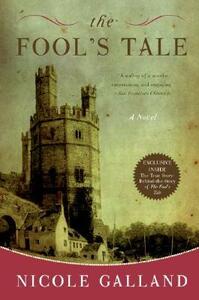Take a photo of a barcode or cover
emotional
sad
tense
slow-paced
Plot or Character Driven:
Character
Strong character development:
Yes
Loveable characters:
Yes
Diverse cast of characters:
No
Flaws of characters a main focus:
Yes
Lots of very slow, unsexy sex and fluff. Romance novel in denial? Something about it felt decidedly unfeminist and left me pretty uncomfortable, but my friend insisted it was worth finishing. I will say--while nothing really happens (all the actual plot is basically summarized into short paragraphs, with only the emotional/sex bits really described to any extent)--the ending is FANTASTIC. If you can read quickly and finish this on your off time at work one day like I did, push through. If you're a slow reader, you might want to save your time.
adventurous
emotional
funny
sad
fast-paced
Plot or Character Driven:
A mix
Strong character development:
Yes
Loveable characters:
Yes
Diverse cast of characters:
Yes
Flaws of characters a main focus:
Yes
adventurous
emotional
medium-paced
Plot or Character Driven:
Plot
Strong character development:
No
Loveable characters:
Complicated
Diverse cast of characters:
No
Flaws of characters a main focus:
Yes
It took me a really long time to read this book. That is not the best endorsement from me. I didn't dislike it, but it never caught my fancy. The characters were not especially appealing in either their goodness or dastardly-ness. The tale was predictable and the actual history was not told in a compelling manner. The ending was rather unsatisfactory to me and came as a surprise only in its suddenness.
Too long. This is Galland's first novel; I loved one of her later books, [b:I, Iago|12875172|I, Iago|Nicole Galland|https://d.gr-assets.com/books/1408338604s/12875172.jpg|18027978] - a retelling of Othello from Iago's perspective. Fool's Tale is an odd mix of things. It's kind of a retelling of the Arthur/Guinevere/Lancelot trope. As the author's note makes clear, she did not set out to write a historical novel, and in that she succeeded. From time to time there's an oddly modern sensibility that surfaces in the middle of a story set in 12th Century Wales. Had she made use of that contrast it could have been an interesting device, but it just seemed to intrude instead.
When something makes me think about a book that I've read, I automatically check to see if I have it on my Goodreads shelves. This is one I missed, apparently. Normally I don't review past reads, because that would take up all of my spare time. This one gets special treatment.
This book is amazing. I feel like it wasn't written, it must have come magically into being on its own. It is confounding, surprising, and some parts make you cringe - like real life. It shocks me that someone could write a historical novel with the scope and plot of this book and make it seem so real.
It is beautiful, painful, and it will surprise you.
This book is amazing. I feel like it wasn't written, it must have come magically into being on its own. It is confounding, surprising, and some parts make you cringe - like real life. It shocks me that someone could write a historical novel with the scope and plot of this book and make it seem so real.
It is beautiful, painful, and it will surprise you.
I started out not liking this book at all. AT ALL. But, certain characters began to grow on me. Like, Gwirion and Isabel. Especially once they became a duet. UGHHH. That ending, though. It tore a hole in my heart, it really did.
Oh, the Welsh with their hard-to-pronounce names. I struggled a little with this book in the beginning and found myself checking and re-checking the pronunciation guide at the front of the book. Once I got the hang of it, I had to give the book another chance because it was a little sluggish in the beginning. Okay, it was a lot sluggish. But give it a chance people!! I would easily give this book 3 and 1/2 stars if I could.
You really start to hate Noble the longer you read the book. He's like a spoiled brat who wants what he wants when he wants it. And apparently all he wants is his childhood friend, Gwirion, to love him and only him. God forbid Gwirion falls in love. They truly switch roles at the end. Gwirion, a name that means "fool" becomes the noble one and Noble ends up being the fool at the end of the story. Don't even get me started on the tragic ending :) I still enjoyed reading it, though.
You really start to hate Noble the longer you read the book. He's like a spoiled brat who wants what he wants when he wants it. And apparently all he wants is his childhood friend, Gwirion, to love him and only him. God forbid Gwirion falls in love. They truly switch roles at the end. Gwirion, a name that means "fool" becomes the noble one and Noble ends up being the fool at the end of the story. Don't even get me started on the tragic ending :) I still enjoyed reading it, though.
dark
mysterious
medium-paced
Plot or Character Driven:
Character
Strong character development:
Complicated
Loveable characters:
No
Diverse cast of characters:
Yes
Flaws of characters a main focus:
Yes
Graphic: Sexual content




